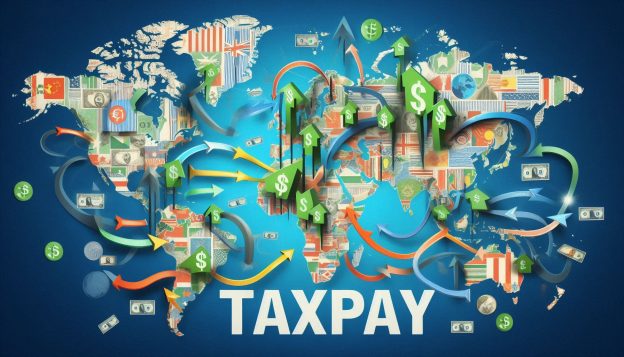Digital taxation has become a central issue for governments as the global economy shifts increasingly online. With digital giants generating significant revenue from markets without a physical presence, countries have sought new ways to ensure fair taxation. However, the implementation of these taxes varies widely across jurisdictions, presenting challenges for multinational companies. Here’s a look at how digital taxes differ globally and how solutions like the Desucla TaxPay service can simplify compliance.
What Are Digital Taxes?
Digital taxes generally target revenues generated by large multinational companies from digital services, such as online advertising, user data, or platform services. These taxes aim to ensure that these companies pay a fair share of tax in the countries where they operate digitally, even if they lack a physical presence there.
Key Examples of Digital Taxation Globally
- – European Union: The EU has been at the forefront of digital taxation. Several EU countries have implemented a Digital Services Tax (DST), targeting large tech companies like Google, Facebook, and Amazon. For example, France imposes a 3% tax on digital companies generating revenue from digital advertising and user data in the country. Similarly, Italy has implemented a DST that charges 3% on certain digital revenues generated in its market, impacting large multinational tech companies?
- – United Kingdom: The UK has introduced a 2% Digital Services Tax, targeting digital services revenues such as social media platforms, search engines, and online marketplaces. This tax is applicable to companies that generate over £500 million globally, with at least £25 million from UK users.
- – United States: The U.S. has yet to adopt a nationwide digital tax, but many states impose sales taxes on digital goods and services. The federal government has also expressed concerns over unilateral digital taxes implemented by its trade partners, seeing them as discriminatory against American companies.
- – India: India has implemented a 2% Equalisation Levy on e-commerce operators earning revenue from digital services or sales to Indian customers, even if they do not have a physical presence in the country. This levy targets companies that offer online sales, advertising services, or content streaming to Indian users.
- – Latin America: Mexico and Brazil have introduced VAT-like digital taxes on services provided by digital platforms to their residents. These taxes are generally applied to digital sales, streaming services, and other online transactions, with compliance enforced through local fiscal representatives or intermediaries.
Challenges with Digital Tax Compliance
Navigating these varying rules and rates presents a challenge for multinational companies. Differences in thresholds, rates, and the scope of taxable services can make compliance complex, leading to potential risks of underpayment or overpayment. Moreover, the need for local representatives in many markets adds another layer of complexity.
How Desucla TaxPay Can Help
Desucla TaxPay simplifies the settlement of international digital tax obligations, providing companies with an efficient, streamlined approach to last mile compliance:
- – Single Centralised Overview: Desucla TaxPay helps businesses bring together treasury and tax professionals by providing a single holistic, cross jurisdiction, cross sub-entity, cross taxes view. This aids with cashflow forecasting, reduces the burden between responsibility hand off and ensures a consistent view from both the Tax and Treasury teams.
- – Local Fiscal Representation: For markets that require local fiscal representatives, such as the certain EU jurisdictions, Desucla can manage these relationships, helping companies maintain compliance without the need to establish a physical presence. This service is particularly useful in countries like France, Italy, and India, where local intermediaries can play a crucial role.
- – Consolidated Payment Solutions: Managing payments to different tax authorities can be cumbersome. Desucla TaxPay consolidates these transactions, allowing businesses to make a single payment, which Desucla then distributes to the relevant tax authorities. This simplifies record-keeping and eases the administrative burden.
- – Comprehensive Reporting: Transparency in reporting is essential to avoid penalties. Desucla TaxPay generates detailed reports for each jurisdiction, ensuring that businesses can provide accurate documentation during audits or inquiries from tax authorities.
The Bottom Line
As countries continue to refine and expand their digital tax frameworks, staying compliant is more important—and more complex—than ever. Desucla TaxPay offers a reliable solution for businesses navigating the patchwork of digital tax rules across the globe, making it easier to meet obligations and focus on growth. Whether you’re dealing with digital services taxes in the EU, equalization levies in India, or local VATs in Latin America, Desucla’s comprehensive service ensures you’re covered.
Let Desucla handle your digital tax payments, so you can focus on what you do best—growing your business. ?




